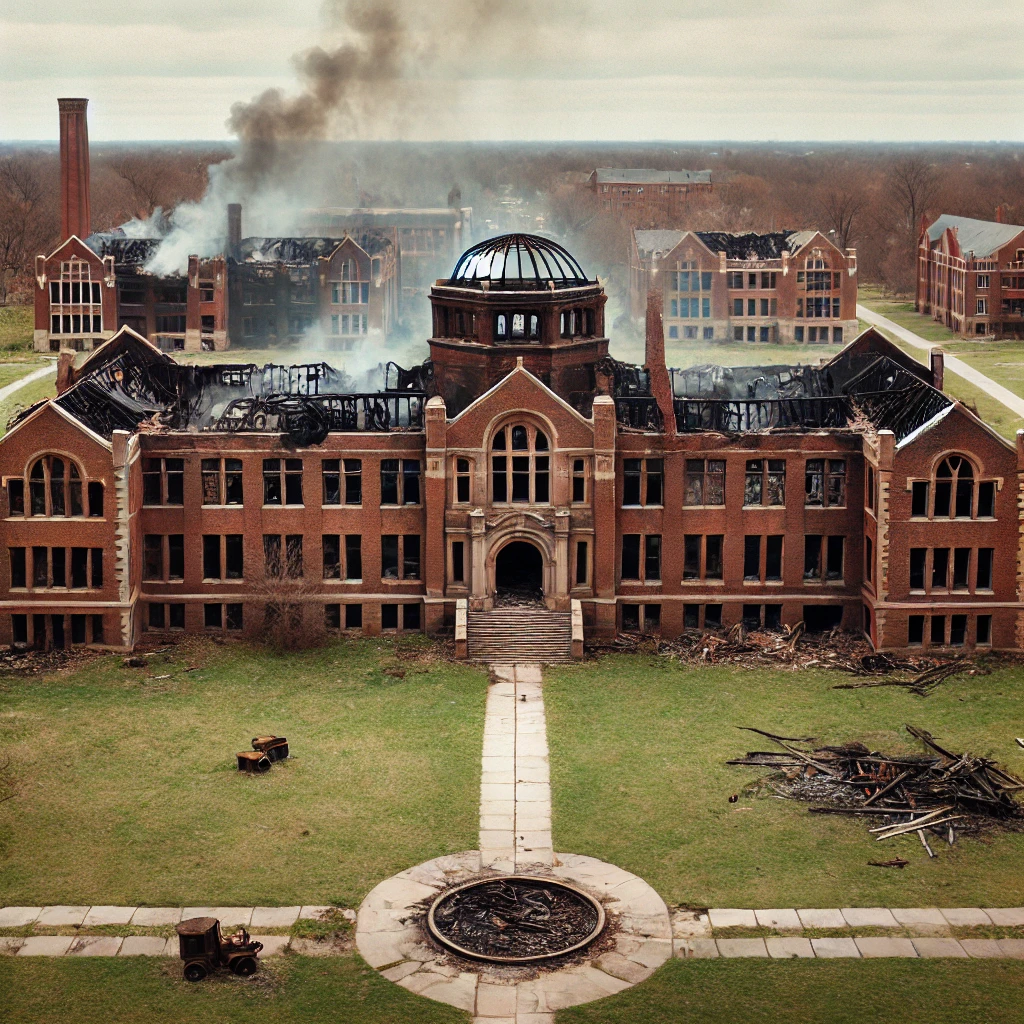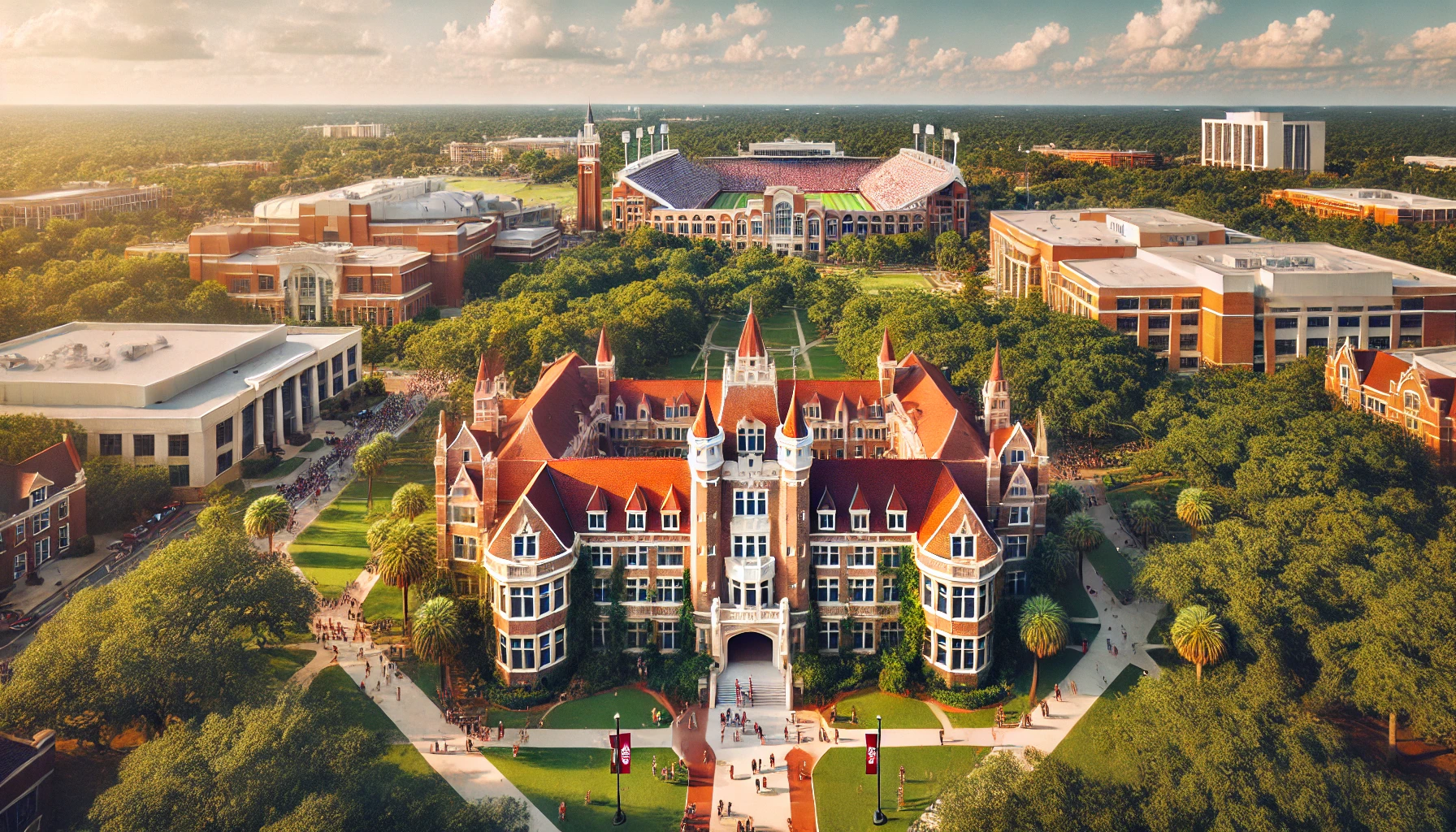HBCU : Knoxville College: A Legacy in Flames – The Struggles and Resilience of a Historic HBCU

Knoxville College Fire: Preserving the Legacy of an HBCU in the Face of Tragedy
Introduction
Knoxville College, a historically Black college and university (HBCU) founded in 1875, stands as a testament to the resilience and ambition of African Americans in the post-Civil War South. Like many HBCUs, it has been a beacon of hope, providing education and opportunities to generations of Black students. However, the college has faced numerous challenges in recent years, including declining enrollment, financial difficulties, and the devastating toll of fires that have ravaged its historic buildings. In this article, we will explore the significance of Knoxville College as an HBCU, the impact of recent fires, and the ongoing efforts to revive and restore this important institution.
The Importance of Knoxville College in HBCU History
Knoxville College holds a special place in the history of Black education in the United States. It was founded by the United Presbyterian Church of North America to provide higher education to freed African Americans. Located in Knoxville, Tennessee, the college grew rapidly during the late 19th and early 20th centuries, becoming known for its academic rigor and commitment to social justice.
At its peak, Knoxville College offered a wide range of academic programs and was home to a vibrant student body. The institution played a key role in training educators, ministers, and professionals who would go on to serve Black communities across the country. Knoxville College, like many HBCUs, has historically been underfunded compared to predominantly white institutions, yet it persisted as a symbol of hope and progress.
In addition to academics, Knoxville College was also involved in the Civil Rights Movement, with students and faculty participating in protests and sit-ins during the 1960s. This activism, combined with its academic reputation, made the college an important cultural and educational center for Black Americans.
Decline and Challenges
Despite its proud history, Knoxville College began facing significant challenges in the latter half of the 20th century. Enrollment declined steadily, and the institution struggled to maintain its financial footing. By the early 2000s, the college had lost its accreditation and was forced to close its doors to students in 2015. This marked a turning point for the college, as it became clear that without major financial support and renovation efforts, Knoxville College might disappear altogether.
One of the biggest challenges the college faces today is the deterioration of its campus. Many of the buildings on campus have fallen into disrepair due to neglect and a lack of funding for maintenance. This has been further exacerbated by a series of fires that have damaged or destroyed several of the college’s historic buildings.
The Knoxville College Fires: A Tragic Blow
In recent years, Knoxville College has suffered a series of devastating fires. These fires, which have often affected abandoned or vacant buildings on campus, have drawn attention to the difficulties of maintaining an unused campus. One of the most tragic incidents occurred on July 16, 2023, when a fire broke out in one of the abandoned buildings, leading to the discovery of two bodies in a separate structure. The victims, Nora Vick, 21, and William Trollinger, 58, were found after firefighters extinguished the flames, and their deaths shocked the local community.
This fire, along with earlier blazes in 2022 and March 2023, highlighted the vulnerability of Knoxville College’s buildings. These structures, many of which are historically significant, have been left unattended for years. Without proper security or upkeep, they became susceptible to vandalism, neglect, and ultimately, fire.
The Knoxville Fire Department has responded to multiple fire incidents on campus in recent years. Each time, they have managed to extinguish the flames, but the damage to the college’s infrastructure is significant. The fires have left behind charred remains of buildings that once symbolized the college’s rich history, creating an urgent need for preservation efforts to prevent further loss.
The Community’s Response
The fires at Knoxville College have sparked outrage and concern within the Knoxville community and beyond. For alumni, these incidents represent not just a physical loss but a symbolic one as well. The destruction of these buildings feels like a blow to the legacy of a college that has served as a vital institution for Black Americans.
Local authorities have also expressed concern over the safety risks posed by the abandoned buildings on campus. Many of these structures are not only fire hazards but also attract trespassers, which can lead to further damage. The Knoxville Fire Department has worked diligently to respond to these incidents, but there is only so much they can do without broader efforts to restore and secure the campus.
Community leaders, alumni, and preservationists have rallied around the cause of saving Knoxville College. Some have called for increased funding to restore the buildings and secure the campus, while others have advocated for turning the campus into a museum or historical site to honor the legacy of the institution. In 2021, the college announced plans to apply for reaccreditation and reopen as an educational institution, a step that many see as crucial to preserving its legacy.
Efforts to Restore and Reopen Knoxville College
Despite the numerous challenges, there is hope for the future of Knoxville College. In recent years, there have been renewed efforts to revitalize the campus and restore its historic buildings. Alumni groups, community organizations, and local officials have all been involved in these efforts, recognizing the importance of preserving the legacy of one of the country’s most important HBCUs.
One of the most significant steps in this process is the college’s push to regain accreditation. Without accreditation, Knoxville College cannot officially function as a degree-granting institution, which has hampered its ability to attract students and secure funding. However, in 2021, college officials announced that they were in the process of applying for reaccreditation and developing plans to reopen the campus to students.
These efforts have been met with optimism from the community, but there is still much work to be done. Many of the college’s buildings require extensive repairs, and the campus needs to be secured to prevent further incidents of vandalism and fire. In addition, the college will need to secure funding to support its operations and academic programs once it reopens.
The Role of HBCUs in the 21st Century
Knoxville College’s struggles are emblematic of the broader challenges facing many HBCUs today. Historically underfunded and often overlooked by state and federal governments, HBCUs have had to rely on the dedication of their alumni and communities to survive. However, the importance of these institutions cannot be overstated.
HBCUs have played a crucial role in the education of Black Americans, providing opportunities that were often denied at predominantly white institutions. These schools have produced some of the most influential leaders in American history, including civil rights activists, politicians, and professionals in various fields.
In the 21st century, HBCUs continue to serve as vital institutions for Black students, offering not only education but also a sense of community and cultural pride. As the United States grapples with issues of racial inequality, the role of HBCUs has become even more important. Knoxville College, like many HBCUs, represents the resilience and determination of Black communities in the face of adversity.
Conclusion
Knoxville College is more than just a collection of buildings; it is a symbol of hope, resilience, and progress for Black Americans. The fires that have ravaged its campus are a tragic reminder of the challenges facing historically Black institutions, but they also underscore the importance of preserving and revitalizing these spaces.
As efforts continue to restore Knoxville College, it is crucial that the community, alumni, and supporters remain committed to the cause. By saving this historic institution, we not only honor its past but also ensure that future generations of Black students can benefit from the education and opportunities that Knoxville College has provided for nearly 150 years.
For more updates visite our website : – https://wtimesnews.com/



